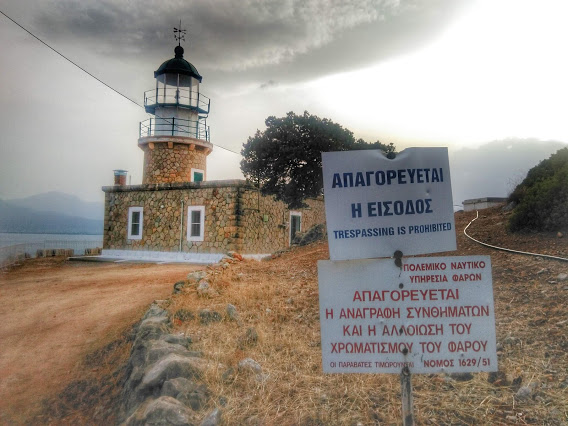Ακόμα και συνωμοσιολογικά βιβλία απορρίπτουν την θεωρία! Εδώ απόσπασμα από το “Superhubs: how the financial elite and their networks rule the world” για την συγκεκριμένη φάση:
A DINNER Of CONSEQUENCE: ATTACK ON THE EURO
When the euro crisis was unfolding in 2010, I orchestrated a hedge fund dinner on behalf of Roubini Global Economics, featuring renowned economist Nouriel Roubini, with whom I worked at the time. We regularly held these events with industry heavyweights in number, would mingle at a cocktail reception and then enjoy a sit-down dinner, during which Roubini would give his macroeconomic outlook, followed by a stimulating exchange of thoughts. These types of events are customary in the financial world, and I was well versed in organizing them. I had been involved in hosting biweekly idea luncheons at my former workplace, the broker-dealer Scarsdale Equities. These luncheons have been a tradition dating back to the 1960s.
Twice a week, we received a dozen guests in the glorious Rainbow Room on top of the landmark Rockefeller Plaza where our offices were located. The magnificent rotund, high-ceilinged room on the sixty-fifth floor offered panoramic views of Manhattan’s skyline and beyond. Its crystal chandeliers and mirrored decorations reflected the sunlight and drenched the festive tables and golden chairs in a warm light. The Cipriani family ran the restaurant and catered the richest and most delicious buffet in the city. Even for spoiled, wealthy Wall Streeters, this was a treat, and many famous investors endured the midday commute to discuss investments with peers in the sky.
 Afterward, we circulated notes on the discussions amongst our clients. Now organizing the Roubini dinner, I scrolled through my Rolodex. At the top of my list was George Soros, who had attended many of my events in the past. This time, however, to my surprise he scoffed at the suggestion and rejected my invitation rather fiercely. As it turned out, a Wall Street Journal report about a recent idea dinner, sponsored by the little-known brokerage firm Monness Crespi Hardt & Co. for about eighteen hedge fund managers, had triggered a PR disaster with unexpected legal consequences for its guests.
Afterward, we circulated notes on the discussions amongst our clients. Now organizing the Roubini dinner, I scrolled through my Rolodex. At the top of my list was George Soros, who had attended many of my events in the past. This time, however, to my surprise he scoffed at the suggestion and rejected my invitation rather fiercely. As it turned out, a Wall Street Journal report about a recent idea dinner, sponsored by the little-known brokerage firm Monness Crespi Hardt & Co. for about eighteen hedge fund managers, had triggered a PR disaster with unexpected legal consequences for its guests.
According to the paper, the conversation had focused on the euro’s demise. The reporter suggested that this conversation resulted in bearish bets on the euro, adding pressure on the European Union to stem the Greek debt crisis. An unrelated quote from George Soros, who hadn’t even attended, warning that the euro might break apart, and the mention of hedge fund legend and Lehman bear David Einhorn’s presence, an inquiry by the Department of Justice’s antitrust division. Some of the hedge fund managers received notices to save any trading records involving market bets on the euro for investigation into potential patterns of collusion.
In addition, the European Commission announced that, in light of the Greek crisis, it would investigate trades in sovereign credit-default swaps, because hedge funds weren’t supposed to profit from the woes of the region’s ailing nations. It would be hard, though, if not impossible, for a few managers to cause a country’s bankruptcy by themselves, because the euro accounts for over $1 trillion of daily trading in global currency markets. 3 In addition, an informative, conceptual exchange of opinions regarding currency trades is hardly illegal. Eventually, it turned out that the event had been misreported. Contrary to initial claims, the dinner had not taken place in secrecy, but at a public restaurant.
The taped conversation—which had lasted 145 minutes and included twenty-three themes—had only focused on the euro for three and a half minutes and only involved three managers. When I asked Soros about the incident, he dryly responded, “Trust me, if I had a great trading idea, the last thing I would want to do is to share it.” But considering the undue media attention, vilification, and potential legal ramifications, Soros had temporarily lost his appetite. The dinners eventually picked up again, but managers became even more guarded in their discussions.

Conspiracy Theories: An Explanation for Attempted Explanations
Given the highly exclusive nature of superhub networking platforms—members-only events, conferences, private parties, and charities—it’s unsurprising that the financial system often finds itself at the center of conspiracy theories. Generally, these theories emerge because people dislike randomness and uncertainty. When threatening events like the financial crisis occur, they feel a lack of explain the uncertain, unexplainable, and uncontrollable, because it is unsettling to think that our existence is determined by randomness without any discernible purpose. Therefore, in an attempt to create order in this world, we try to match specific events with specific causes. When occurrences are too complex to be understood, we tend to weave narratives and assign blame to a perceived higher power—often exploitative financial masterminds colluding at the expense of the rest of society. This kind of thinking is influenced by confirmation bias, which means seeking support for an existing belief, or hindsight bias, the subsequent fabrication of explanations for something that already took place.
Conspiracy theories are dangerous because at best they dumb down the population and at worst they prevent finding real solutions; such theories deflect the relevant facts and, therefore, avoid a proper analysis. That is not to say that there may never be an occasional—at least attempted—conspiracy, but they are more often the exception than the rule.



